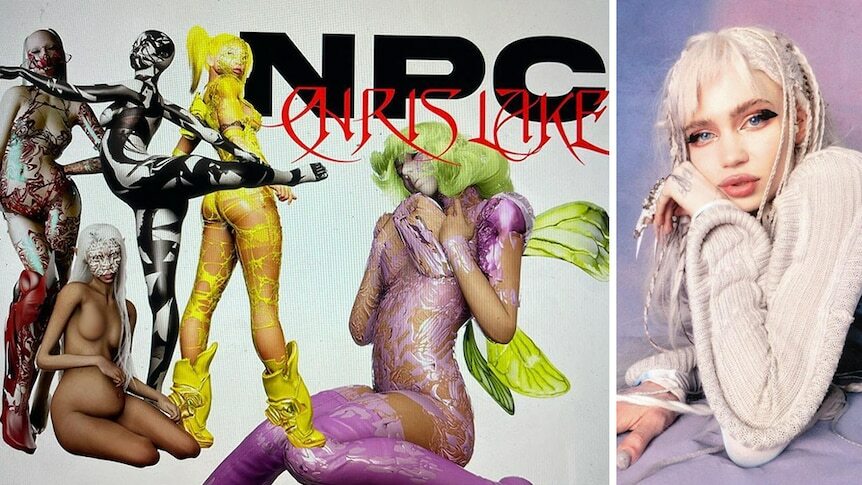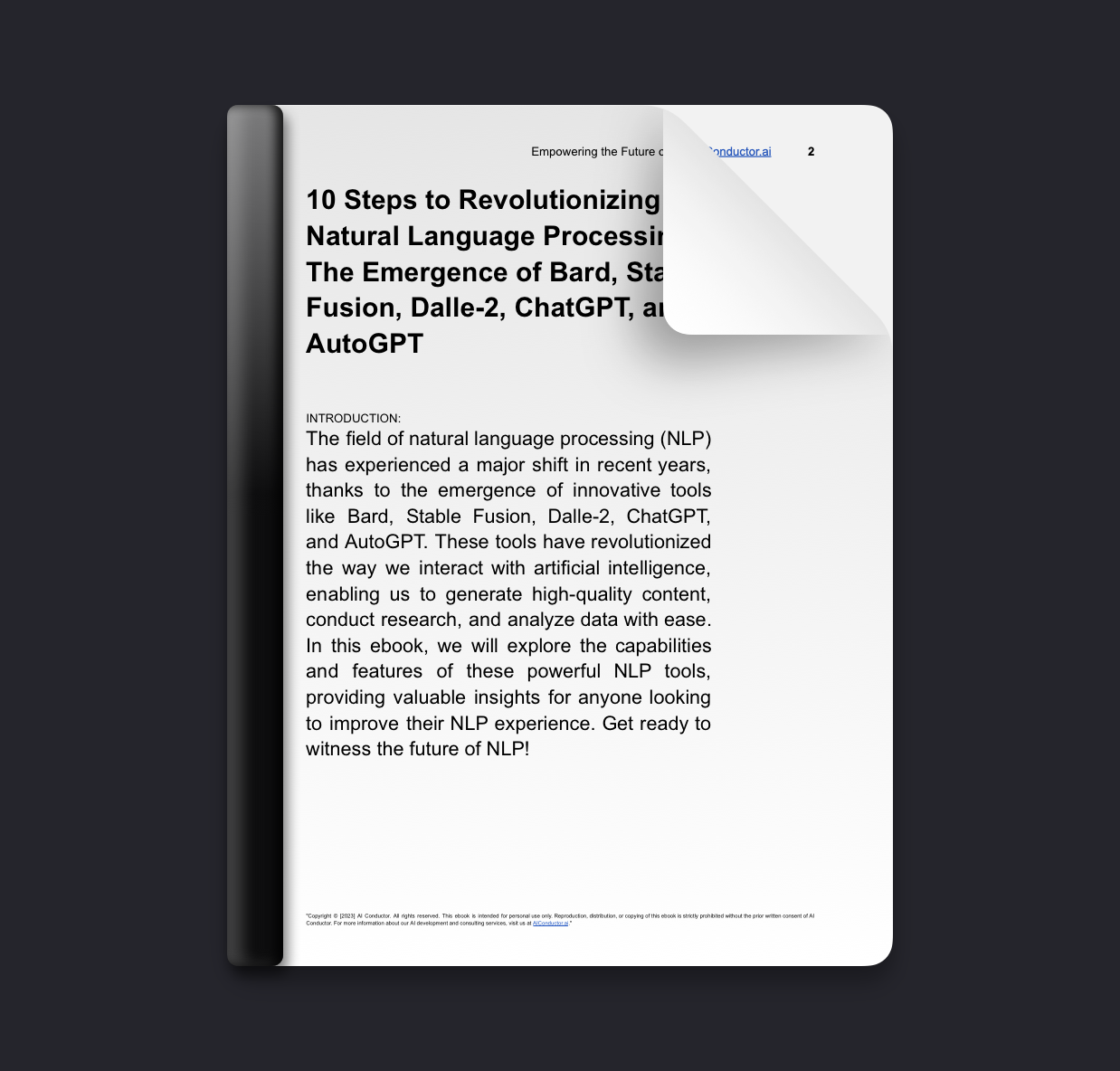We asked:
What safeguards are in place to ensure that Artificial Intelligence-based vocal projects do not become a tool of manipulation and oppression?
The Gist:
Grimes’ obsession with artificial intelligence goes way back. Grimes, who is exploring the potential of artificial intelligence in music production. She is currently experimenting with a vocal project that uses AI to create unique vocal performances. The project is based on the idea of creating a set of rules that will instruct the AI to generate an infinite variety of vocal performances. The article explores Grimes' motivations for the project, her approaches to working with AI, and the potential implications of her work. Grimes believes that her project could open up new possibilities for creating music and revolutionize the music industry. She is also exploring the ethical implications of creating AI-generated music and the need to protect the rights of AI-generated performers. The article concludes by noting that Grimes' work could have far-reaching implications for the future of music production.

What are the ethical implications of using artificial intelligence to create vocal performances?
Decoded:
In the midst of the Digitized Age, artificial intelligence (AI) is slowly becoming an essential part of our daily lives. Whether it is being used to schedule medical appointments or to make decisions in the workplace, AI promises to make many of our tasks easier.
One cutting-edge AI technology that has been making its way into the public conscience is the vocal AI project, which seeks to recreate the vocal inflections and emotional nuances of the human voice. With input from a number of sources, such as text, music notation, and raw audio data, these projects have made it possible to create AI-based vocal performances that are almost indistinguishable from human-voiced counterparts. They are even capable of learning from their mistakes and adjusting to sound more natural over time.
Recently, Canadian music artist Grimes has been exploring this concept as she contemplates creating her own vocal AI project. She posted a series of tweets about the potential project, saying “I’m writing rules for an AI vocal project that I’m working on. What do you think should be the main points?” and “I think the biggest rule should be that the AI should not be used in the same way as it is typically used, which is to replace humans. Instead, the AI should be used to create extraordinary new sounds, genres, and possibilities that could not exist without it.”
Grimes’ proposed vocal AI project has a number of implications not just for the music industry, but also for society in general. Firstly, it presents a brand new landscape, not just in terms of the sounds that can be created, but also the business models that can be put in place. This could mean that artists have more control over the production and distribution of their music, enabling them to build closer relationships with their fans.
Furthermore, since vocal AI technology can be used to replicate human inflection, it could be used to make conversations and interactions more natural, for example in language teaching or customer service settings. Additionally, it may lend itself to more remarkable approaches, such as a vocal avatar that can accurately replicate people’s speech patterns and intonations.
To Grimes’ credit, she is taking on the challenge of building a vocal AI project with an ethical perspective in mind. By introducing rules that go beyond the technical aspects and into how this technology could be used, she is proactively attempting to build a framework that ensures that AI vocal projects are used in an ethical and beneficial way.
Ultimately, Grimes’ proposed vocal AI project has the potential to revolutionize the music industry, and could be an integral part of our rapidly changing digital world. While there remain many technical and ethical concerns to address, the pathways to exploration are more open than ever and it will be exciting to see what possibilities arise in the months and years to come.
One cutting-edge AI technology that has been making its way into the public conscience is the vocal AI project, which seeks to recreate the vocal inflections and emotional nuances of the human voice. With input from a number of sources, such as text, music notation, and raw audio data, these projects have made it possible to create AI-based vocal performances that are almost indistinguishable from human-voiced counterparts. They are even capable of learning from their mistakes and adjusting to sound more natural over time.
Recently, Canadian music artist Grimes has been exploring this concept as she contemplates creating her own vocal AI project. She posted a series of tweets about the potential project, saying “I’m writing rules for an AI vocal project that I’m working on. What do you think should be the main points?” and “I think the biggest rule should be that the AI should not be used in the same way as it is typically used, which is to replace humans. Instead, the AI should be used to create extraordinary new sounds, genres, and possibilities that could not exist without it.”
Grimes’ proposed vocal AI project has a number of implications not just for the music industry, but also for society in general. Firstly, it presents a brand new landscape, not just in terms of the sounds that can be created, but also the business models that can be put in place. This could mean that artists have more control over the production and distribution of their music, enabling them to build closer relationships with their fans.
Furthermore, since vocal AI technology can be used to replicate human inflection, it could be used to make conversations and interactions more natural, for example in language teaching or customer service settings. Additionally, it may lend itself to more remarkable approaches, such as a vocal avatar that can accurately replicate people’s speech patterns and intonations.
To Grimes’ credit, she is taking on the challenge of building a vocal AI project with an ethical perspective in mind. By introducing rules that go beyond the technical aspects and into how this technology could be used, she is proactively attempting to build a framework that ensures that AI vocal projects are used in an ethical and beneficial way.
Ultimately, Grimes’ proposed vocal AI project has the potential to revolutionize the music industry, and could be an integral part of our rapidly changing digital world. While there remain many technical and ethical concerns to address, the pathways to exploration are more open than ever and it will be exciting to see what possibilities arise in the months and years to come.

Essential Insights:
Three-Word Highlights
AI, Music, Vocal
Winners & Losers:
Pros:
1. Grimes' AI vocal project could potentially revolutionize the music industry by creating an entirely new way of creating and listening to music.
2. It could open up new opportunities for collaboration between artists and producers, allowing them to create unique sounds and styles.
3. It could allow for more experimentation and creativity, as the possibilities of AI are still being explored.
Cons:
1. AI-generated music could be seen as a threat to the livelihood of human musicians, as it could replace them in some roles.
2. It could lead to a homogenization of music, as AI-generated sounds become more and more standardized.
3. It could be seen as a form of cultural appropriation, as AI-generated music could be seen as a form of stealing from other cultures.
Bottom Line:
The bottom line is that Grimes is exploring the possibilities of AI-driven vocal production, which could revolutionize the music industry. She is considering a set of rules to ensure that AI-generated vocals are used in ways that are respectful to the artists who create them. Although the technology is still in its early stages, it could have a huge impact on the way music is produced in the future.
Ref.





